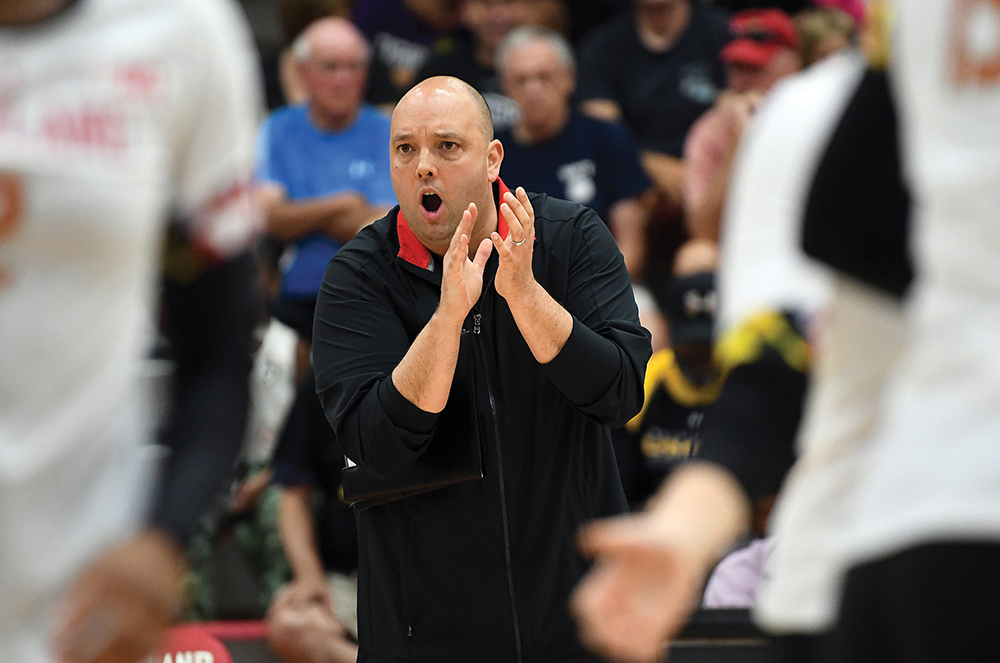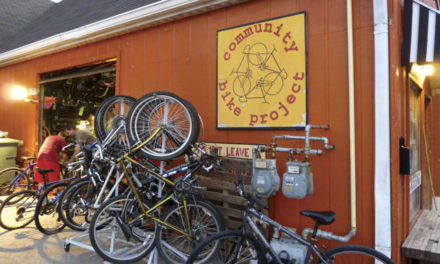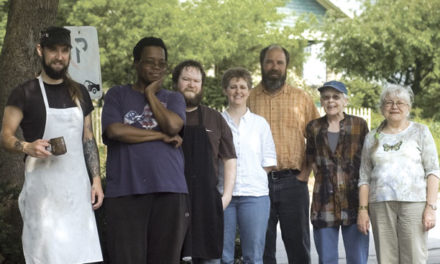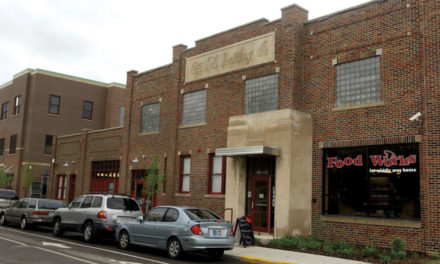
New IU women’s volleyball coach Steve Aird. Courtesy photo
BY PETER DORFMAN
Steve Aird, the new head coach for Indiana University women’s volleyball, is accustomed to winning and to successfully turning around struggling programs. But a winning team is only part of what Aird hopes to bring to IU.
“The total experience—from parking to seating to who greets people when they come in the door—all of those things are on my mind before we start the season,” Aird says. “We have to build the business. I want to generate some thrash and make it exciting and a fun experience for families and students.”
Aird comes to IU after four seasons as head coach at the University of Maryland where he leaves behind a much-improved Big Ten program. But improvement wasn’t just measurable in wins. “When I got to Maryland, volleyball was averaging 330 spectators per match,” he recalls. “By the 2017 season, we’d had multiple matches with 5,000 to 6,000 in the stands.”
Aird’s Hoosiers will be the first to play in the new $17 million, 3,000-seat Wilkinson Hall, the volleyball and wrestling arena now under construction. “I fully expect our first match in the new arena to be sold out,” he says.
Aird, now 40, was a 6-foot-3-inch outside hitter for the Canadian national volleyball team when he came to the United States to play in the NCAA. He wound up a two-time captain on a Penn State men’s team that made the Final Four nationally three times.
Aird says he relishes the challenge of turning around IU’s program, which went 1-19 last season in conference play. “It’s what I do,” Aird says. “I think a lot of people want to become custodians of already-impressive programs. It’s the path of least resistance. But I’m just built differently.”
He’s known as a remarkably successful recruiter of Big Ten–level talent. “Within 300 or 400 miles of here, there’s more high school and club volleyball than anywhere else in the country,” he observes. “A lot of kids can play. But I’ve got to find the kinds of alphas who want to be the reason a program becomes exceptional.”







